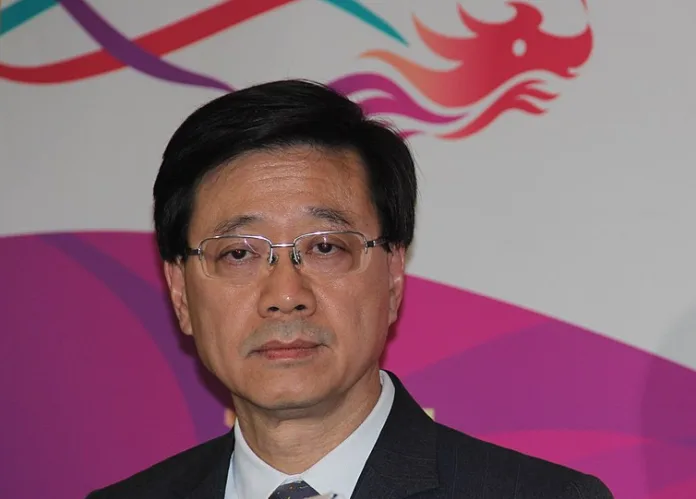Legislation to quash dissent raises international concerns
On March 19, 2024, Hong Kong’s Chief Executive, John Lee Ka-chiu, alongside lawmakers, celebrated the passing of the new security law, Basic Law Article 23 legislation at the Legislative Council in Hong Kong. This new security law, unanimously approved by the parliament, significantly enhances the government’s power to suppress dissent, introducing life imprisonment for offences such as treason, insurrection, sabotage, external interference, and the theft of state secrets.
The Legislative Council, dominated by Beijing loyalists, claims the law is essential for protecting national security. However, this development is widely regarded as a continuation of the political crackdown that began after the large-scale street protests in 2019, challenging China’s rule over the semi-autonomous region. Critics argue that the law marks a further erosion of the civil liberties promised to be preserved for 50 years following Hong Kong’s handover from British to Chinese rule in 1997.
Human rights organizations like Amnesty International have condemned the law’s enactment, labelling it a “crushing blow to human rights in the city.” Similarly, UK Foreign Secretary Lord Cameron has expressed deep concern, suggesting that the law will significantly impact the rights and freedoms of Hong Kong’s residents and workers. He urges Hong Kong authorities to honor their commitments to human rights and the rule of law.
Nathan Law, a prominent Hong Kong activist now residing in London, voiced his apprehensions to Sky News, emphasizing the suppressive nature of the new law and its alignment with the People’s Republic of China’s view of the world as filled with hostile forces. This perspective, he argues, contradicts the notion of Hong Kong as a liberal society.
The Safeguarding National Security Bill, passed during a special session, adds to the Beijing-imposed national security law from four years ago, which has already significantly muted opposition in the city. Following the vote, John Lee announced that the new law would be effective from March 23, emphasizing its role in safeguarding national security and allowing Hong Kong to focus on economic development and improving livelihoods.
Officials have defended the legislation, asserting that it strikes a balance between security needs and the protection of rights and freedoms. They argue it is crucial for preventing a repeat of the protests that have previously rocked the city.
This legislative move has sparked international debate over its implications for Hong Kong’s autonomy, freedoms, and its role on the global stage. With many activists prosecuted or in exile and pro-democracy media outlets shut down, the city’s political landscape continues to shift dramatically under the influence of this and previous security laws.
